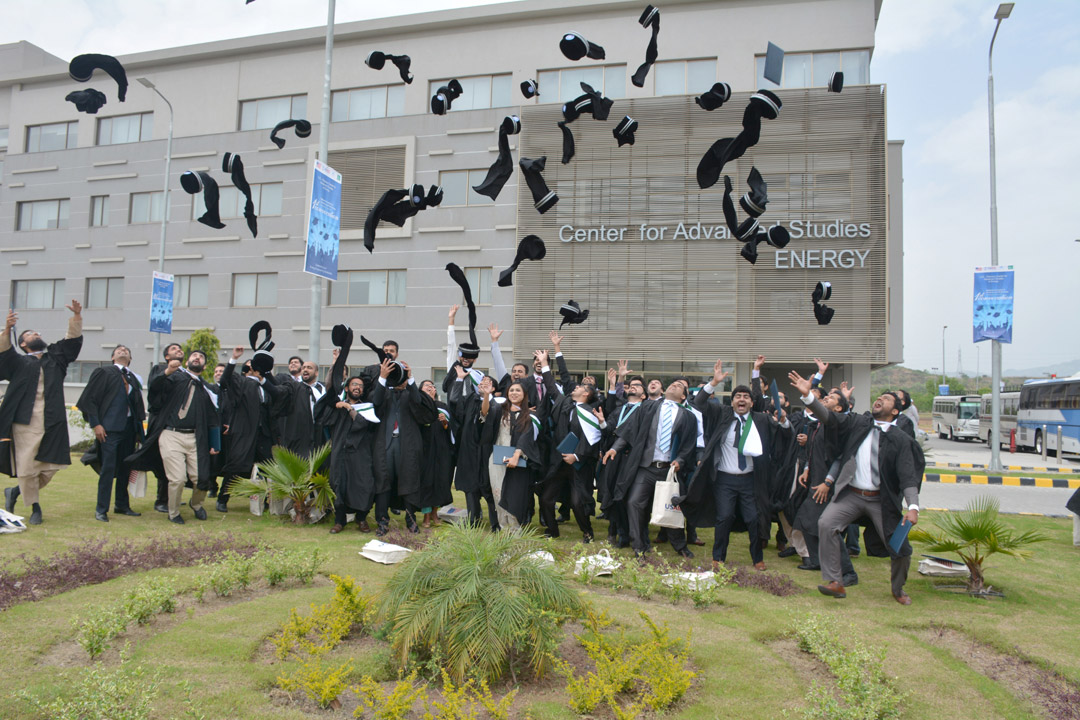NUST holds first convocation for USPCASE graduates

The U.S.-Pakistan Center for Advanced Studies in Energy at NUST held its first convocation ceremony for graduates on April 18, 2018.
The U.S.-Pakistan Center for Advanced Studies in Energy (USPCASE) at National University of Sciences and Technology (NUST) held its first convocation ceremony for graduates on April 18, 2018. Ninety-five NUST graduates have received masters degrees in energy engineering. Since the project began, more than 600 students have enrolled in newly created masters and Ph.D. programs in energy engineering at the U.S.-Pakistan Centers for Advanced Studies in Energy at NUST and University of Engineering and Technology (UET) Peshawar. These graduates symbolize the significant changes taking place to transform Pakistan’s energy landscape and provide reliable, sustainable power for all Pakistanis including those who currently reside outside the grid. This access to energy is important not only to reduce human suffering but also to ensure the economic vitality of Pakistan.
U.S. Ambassador to Pakistan, David Hale attended the convocation. He commended the students for their work and encouraged them to apply their expertise. “With the skills you’ve gained here, you are now equipped to tackle Pakistan’s most vexing energy challenges,” he said. “Your achievement and the building we are standing in today is a testament to the 70-year partnership between the United States and Pakistan to build a brighter future for the citizens of both our countries.”
USAID and the Centers for Advanced Studies program
USAID is the lead U.S. Government agency that works to end extreme global poverty and enable resilient, democratic societies to realize their potential. To create and strengthen a culture of applied research, USAID launched the U.S.-Pakistan Centers for Advanced Studies in 2015.
With significant expertise in power systems, photovoltaics and renewable energy, policy and related energy engineering, Arizona State University was selected to lead the energy centers.
USPCASE project outcomes include:
- Robust student and faculty exchange programs between U.S. and Pakistani universities
- Strengthened university capacity to deliver quality applied research in energy
- Regular policy dialogue between public and private energy stakeholders
- Modernized curricula and teaching methods
- New energy engineering degree programs and courses for masters and Ph.D.-level students
- Establishing channels to facilitate local and international networking in the energy sector
- Increasing access to energy-related professions for women and economically disadvantaged students
Congratulations to all of our graduates!
Read more about the First USPCASE Convocation at National University of Sciences and Technology (NUST):